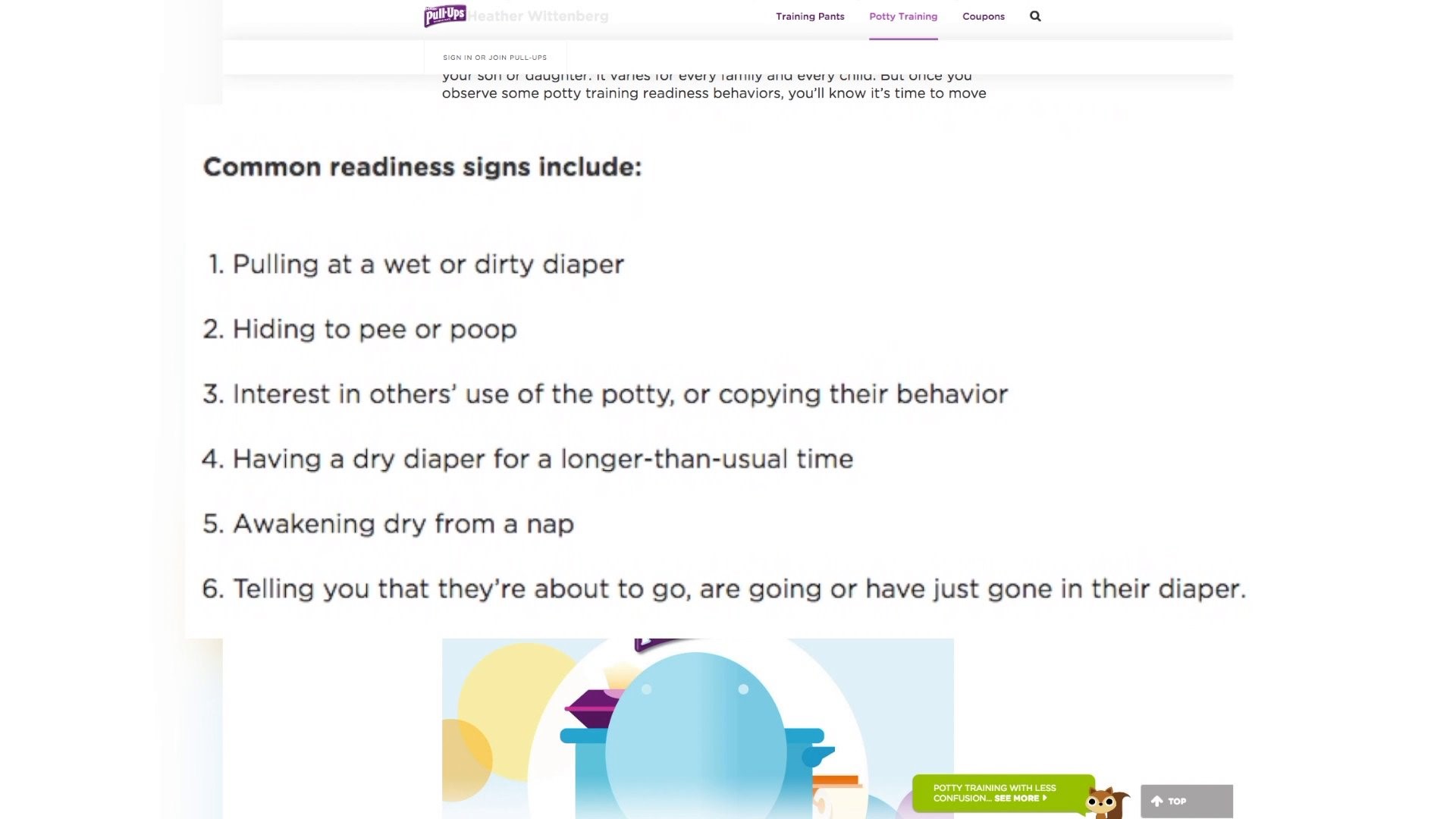HARTFORD, Conn. — When it comes to potty training, there are as many strategies are there are children, because each child’s development is different. However, there are some principles as to when to start.
Many experts say it’s up to the child to determine his or her readiness – in other words, the process will finish when the child is ready, regardless of when a parent tries to start it.
Dr. Rob Keder, a Developmental and Behavioral Pediatrician with Connecticut Children’s Medical Center, said there are many reasons a child can be resistant to training.
"It could be that they’re just not ready yet - meaning if the child can’t sense that they need to go yet, then they can’t sense and we can’t over-expect them to do that,” he said, “and we want to make sure we’re meeting the child, developmentally, where they are."
Dr. Keder said some toddlers are ready to potty train by as young as 18 months, while others aren’t ready until past their third birthday.
Huggies has a good list of the six signs of readiness.
- Pulling at a wet or dirty diaper
- Hiding to poop or pee
- Having a dry diaper for longer than usual
- Having a dry diaper after a nap
- Telling you they’re about to go or that they just went.
- Showing an interest in the potty.
Once you’ve determined your child is ready to begin, keep in mind he or she will still need to set the pace.
"The sense is that it’s kind of a dance, and we’re always kind of taking the expectation to this slight next level but not pushing too, too, far and definitely not pushing beyond the reach of the child," Dr. Keder said.
Also, patience rules.
"You are actively teaching it," Dr. Keder explained. "You have to be in the mental and emotional space to be prepared and committed to teaching your child to toilet train.”
He says trying to toilet train while you’re trying to get dinner on the table on a Monday night is probably not great – a big part of training is having your child communicate when it’s time to go.
Dr. Keder said children on the autism spectrum or children who have challenges communicating can often be delayed with potty training as well.

